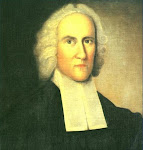Brit Hume is a Christian and well-known news broadcaster who currently works as an analyst for the Fox Network. On the program “Fox News Sunday,” Mr. Hume was involved in a televised roundtable discussion that involved, among other topics, the golfer Tiger Woods. Mr. Woods’ current troubles that arise from his numerous self-admitted acts of adultery are well-known, and when asked what counsel he would give the golfer, Mr. Hume replied with this amazing statement, which you can find easily on U-Tube:
He’s said to be a Buddhist; I don’t think that faith offers the kind of forgiveness and redemption that is offered by the Christian faith. So my message to Tiger would be, “Tiger, turn to the Christian faith, and you can make a total recovery and be a great example to the world.”
As you might imagine, Mr. Hume’s comments caused the television critic for The Washington Post, Tom Shales, to write a blistering critique in yesterday’s newspaper. What was interesting to me, however, is that Mr. Shales never challenges the underlying truth of what Mr. Hume said. Mr. Shales nowhere in his column suggests that Buddhism does actually offer forgiveness or redemption, and that Mr. Hume is otherwise factually wrong. In fact, it is not altogether clear from the column exactly what point Mr. Shales is trying to make, beyond expressing his deep offense that Mr. Hume, in Mr. Shales’ words, “stepped boldly up to the task of telling people what religious belief they ought to have” (“Brit Hume’s Off Message,” www.washingtonpost.com).
What concerns me is that Mr. Shales’ column typifies the radical religious pluralism that America’s elites have so thoroughly embraced. Even when they are unwilling to challenge the truthfulness of Christian claims, as here, they assert that the public square must be so clear of religious discourse that Christians ought not to claim in public that our faith teaches truth that other religions simply do not possess. Although Mr. Shales does not go beyond suggesting that Mr. Hume should apologize for his remarks, other cultural elites go so far as to suggest not only that Christians should not speak in the public square but that our First Amendment right to do so ought to be taken away from us.
In his column Mr. Shales poses this curious question: “He [Mr. Hume] really doesn’t have the authority, does he, unless one believes that every Christian by mandate must proselytize?” If by “authority” Mr. Shales means the mandate of America’s cultural elites like himself, of course Mr. Hume lacks authority in that sense. However, Mr. Hume, like all followers of Jesus, believes he was acting under a far higher authority, that of Jesus Christ, the King of kings and Lord of lords, who commands his people to carry the message of salvation in him alone to the ends of the earth (Matthew 28:18-20). Clearly the “ends of the earth” includes, by God’s grace in this case, Fox Television. Thank the Lord for Mr. Hume’s boldness to speak the truth.
